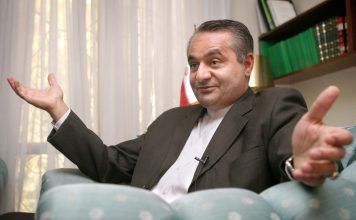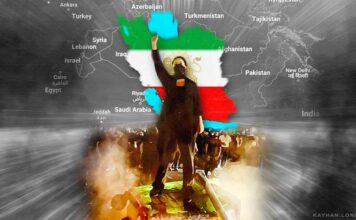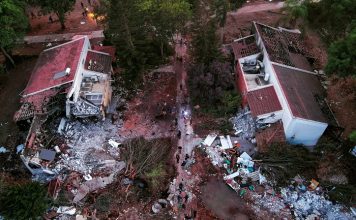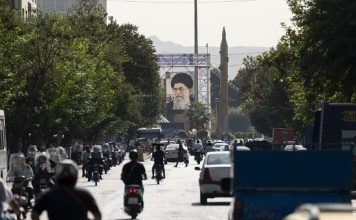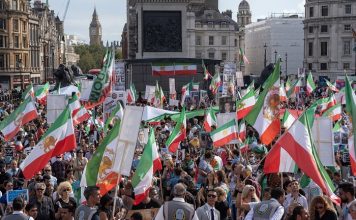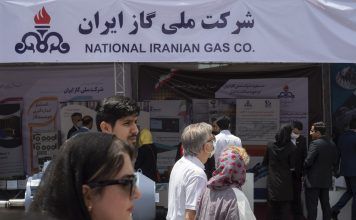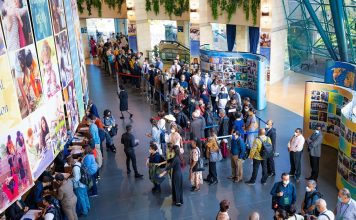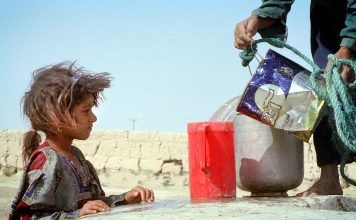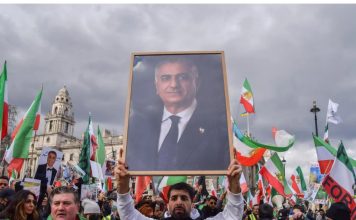By Dr. Tahirih Danesh
[aesop_content color=”#ffffff” background=”#0892d0″ columns=”1″ position=”none” imgrepeat=”no-repeat” disable_bgshading=”off” floaterposition=”left” floaterdirection=”up” revealfx=”off” overlay_revealfx=”off” aesop-generator-content=”Dr. Danesh is executive director of the Persia Educational Foundation, based in London, and a visiting lecturer in human rights law at the University of Roehampton in the U.K. The views expressed are her own.
“]Dr. Danesh is executive director of the Persia Educational Foundation, based in London, and a visiting lecturer in human rights law at the University of Roehampton in the U.K. The views expressed are her own.[/aesop_content]
On April 25th, 1,400 Baha’is from 170 countries gathered in Haifa, Israel to elect the community’s international leadership body.
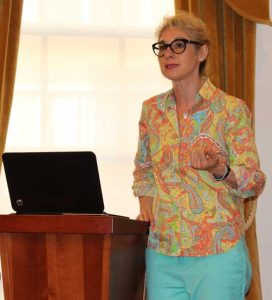
The Baha’is are Iran’s largest non-Muslim minority. Yet the Islamic Republic has banned their gatherings and subjected members of their elected bodies to forced disappearance, imprisonment, torture and execution.
This year marks the 8th time that Iranian Baha’is were deprived of taking part in this important global event. Meanwhile, the worldwide Baha’i community continues to focus on transforming the suffering and deprivation experienced by all Iranians, including Baha’is, into new pathways for peace and prosperity of all humankind.
Elections of the community’s international leadership take place every year in late April, when the Baha’is observe the 12-day festival of Ridvan (pronounced Rezvan, meaning paradise). The festival marks a time when, amid the imprisonment and exile of early Baha’is by the Qajar and Ottoman Empires from Baghdad to the deadly prison city of Akko (now part of Israel), Baha’u’llah publicly founded the Baha’i Faith and instructed his followers to promote happiness, fellowship and service to humanity, regardless of pressures and persecution.
The eight-million-strong worldwide community prides itself in its origins in 19th-century Persia. While today Iranians are a minority among the highly diverse Baha’i community, they all turn to Iran to organize their annual calendar and mark festivities and other special occasions around the globe, based on the Tehran time zone.
Known for their commitment to unity in diversity, the Baha’is believe that all faiths mark different stages in the history of humanity as if they were journeys towards a better understanding of God. A focus on social action means that each Baha’i is responsible for their own faith through acts of service to anyone from any background. Baha’is are encouraged to marry people of any or no faith, and place great emphasis on demonstrating faith through actions and not words.
The worldwide followers of Baha’u’llah, the Prophet-Founder of the faith and a nobleman from Nur in the northern Iranian province of Mazandaran, are the first religious community to replace any type of cleric with nine elected individuals serving their local, national or international communities in order to deliver justice and create unity.
At local and national levels, these individuals are elected annually and are referred to as Assemblies. At the international level, the body is elected every five years and is referred to as the House of Justice, a term that resonates with Iranians who are familiar with the Constitutional Revolution (1905-1911), which had as one of its main goals the establishment of bodies known as Edalatkhaneh (‘house of justice’) to help promote fairness and equity throughout Iran.
This year marks the 13th international convention for the worldwide Baha’i community’s election of its international leadership. These elections take place in late April, when Baha’is observe the 12-day Festival of Ridvan (pronounced Rezvan meaning paradise). The festival marks a time when, in the midst of the imprisonment and exile of early Baha’is by Qajar and Ottoman Empires from Baghdad to the deadly prison city of Akko (now part of Israel) his message remained constant to the end. In fact, not long before his passing in Akko, in a meeting with a Cambridge scholar who had travelled to meet the Persian nobleman in exile, Baha’u’llah stated: ‘We desire but the good of the world and the happiness of nations.’
To that end, the Baha’is value consultation and collaboration. During the three-day-long international convention, they engage in transnational, transcontinental and global consultations around ideas and methods to advance the good of all humanity through education, health, agriculture and development of their communities through service and collaboration with people of all backgrounds.
A concept introduced by the Universal House of Justice to the Baha’is in Iran, known as ‘constructive resilience,’ encourages the small minority and their fellow believers worldwide to disregard fight-or-flight responses and instead turn human rights violations into opportunities for the betterment of all.
At the height of the Islamic Republic’s persecutions of the Baha’i community in 1983, the Universal House of Justice established its Office of Social and Economic Development to help focus the Baha’is increase access to socioeconomic rights for everyone around the globe.
These begin with the right to education. Since 1980, under then Minister of Education Mohammad-Ali Rajai, the Islamic Republic continues to deprive the Baha’is of this pivotal right.
In preparation for the three-day-long convention, the participants remembered in adoration their sacred motherland, Iran, as they prayed at the Baha’i shrines in and around Haifa, which are modelled after the hanging gardens of Babylon.
For images please see: https://news.bahai.org/story/1656/
Iranian Authorities Demolish Bahai Minority’s Houses, Human Rights Groups Say


